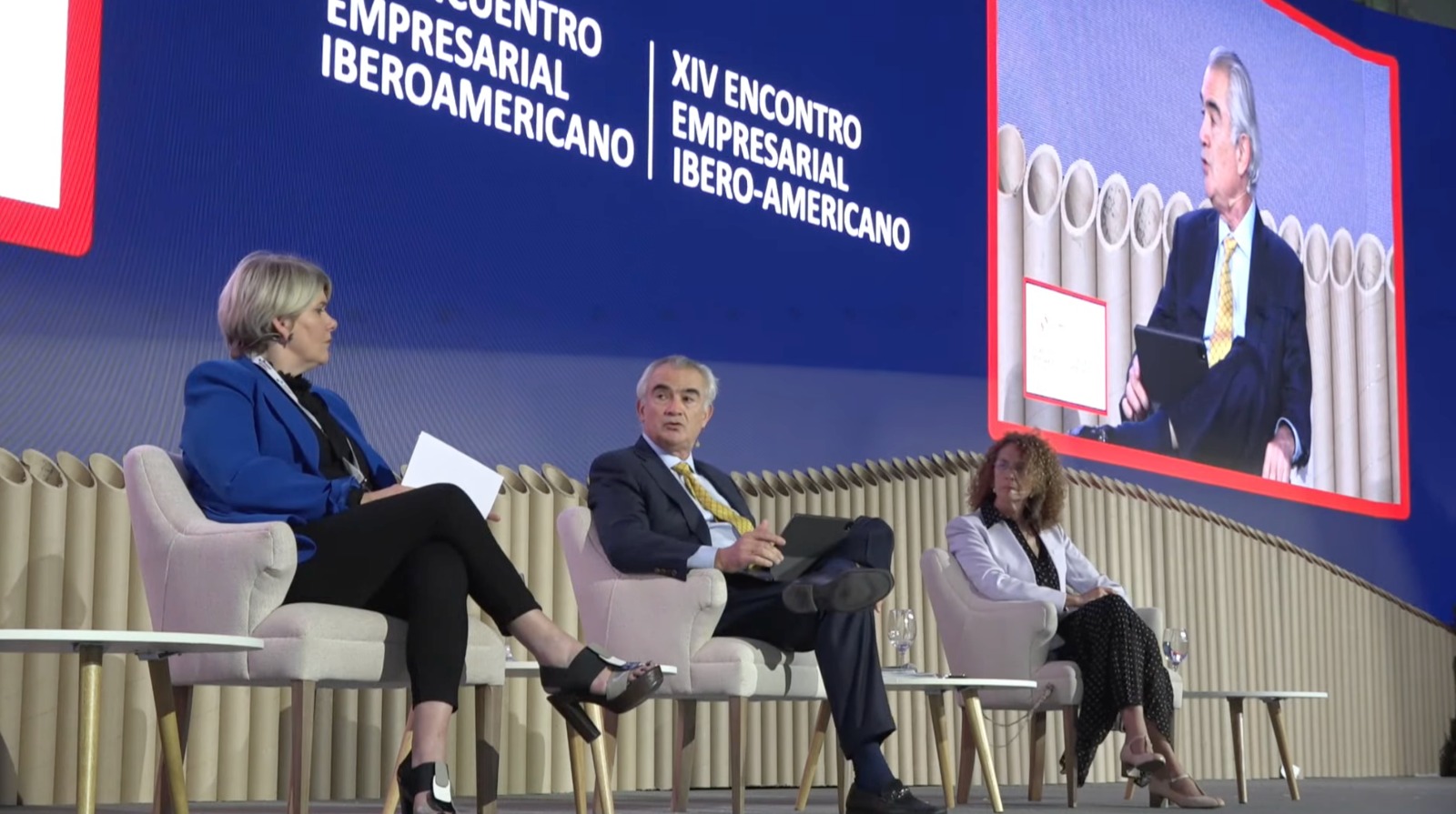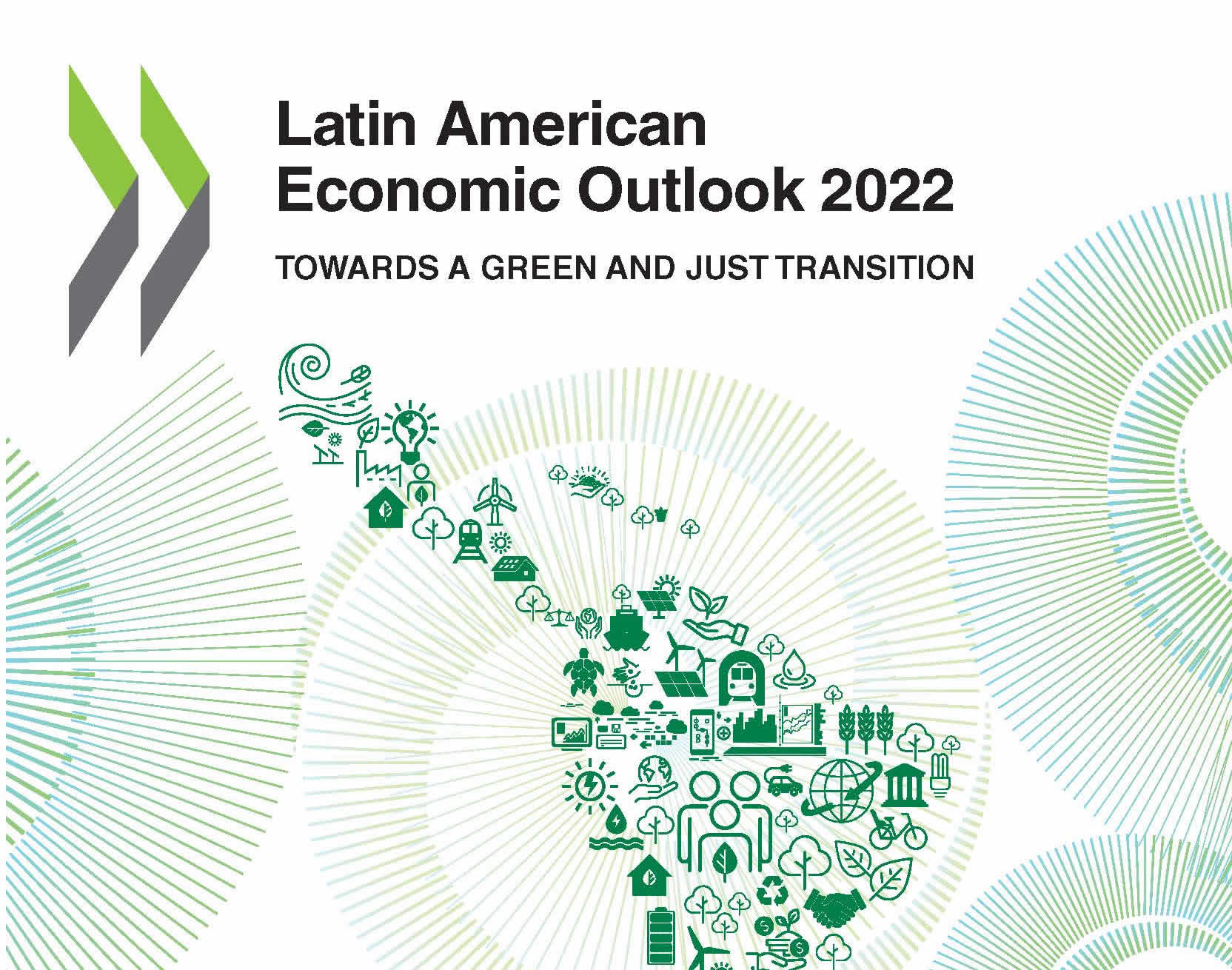The Green Transition and Productive Development Policies are Essential Elements for Changing the Region’s Development Model
ECLAC’s Executive Secretary, José Manuel Salazar-Xirinachs, participated in the presentation of the Latin American Economic Outlook (LEO) report, in the framework of the XIV Business Meeting of the Ibero-American Summit 2023.

The Executive Secretary of the Economic Commission for Latin America and the Caribbean (ECLAC), José Manuel Salazar-Xirinachs, stressed today that the green transition and productive development policies are essential elements for an urgent and necessary change in the region’s development model, during one of the main sessions of the XIV Ibero-American Business Meeting, which is taking place in the Dominican Republic in the context of the XXVIII Ibero-American Summit 2023.
The United Nations regional commission’s highest authority participated in a session entitled “The Public Viewpoint: Ibero-America’s Economic Outlook,” where the Latin American Economic Outlook (LEO) 2022: Towards a Green and Just Transition report was presented. This document – prepared jointly by ECLAC, the Development Centre of the Organisation for Economic Co-operation and Development (OECD), CAF-Development Bank of Latin America, and the European Commission – was first launched in November 2022 at the COP 27 held in Egypt.
Also participating in the high-level event were José Manuel Vicente, Finance Minister of the Dominican Republic; Ulrik Vestergaard Knudsen, Deputy Secretary-General of the OECD; Ragnheiður Elín Árnadóttir, Director of the OECD Development Centre; Katja Afheldt, the European Union’s Ambassador in the Dominican Republic; and Alicia Montalvo, CAF’s Manager of Climate Action and Positive Biodiversity. The discussion was moderated by Andrés Allamand, the Ibero-American Secretary-General (SEGIB).
The fifteenth edition (2022) of the LEO report explores the possibilities of systematically advancing the green transition by promoting a new energy and productive matrix, but via a transition that would also be just, meaning that it would bolster social protection systems, promote the creation of quality, formal employment and reduce existing differences between socioeconomic groups, territories and generations. This is coupled with the need to develop new sources of financing and strategic partnerships as well as renewed regional and international cooperation.
“As we have been saying, Latin America and the Caribbean urgently needs to transform its development model into one that is more productive, inclusive and sustainable. The green transition and productive and digital transformation are essential elements. The consequences of the COVID-19 pandemic and of the war in Ukraine have reminded us of the weak capacity for crisis response, and of the major vulnerabilities that persist in the region. The low level of resilience and these acute vulnerabilities are associated with certain structural problems, such as weak social protection systems, low productivity, our fragile institutions and a development model that is not environmentally sustainable,” José Manuel Salazar-Xirinachs emphasized in his remarks.
ECLAC’s Executive Secretary recalled that according to the organization’s latest estimates, the region ended 2022 with 3.7% growth and a significantly lower rate of around 1.3% is forecast for 2023, which will round out a decade in which the region’s average annual growth will have been just 0.9%, below the 2% of the notorious “lost decade” of the 1980s. In addition, towards the end of 2022, 32.1% of Latin America and the Caribbean’s population – or 201 million people – were living in poverty, while 13.1% – 82 million people – were in situations of extreme poverty, a state that especially affects women, children and older persons.
On another note, he indicated that the region disproportionately suffers the consequences of climate change: 13 of the 50 countries most affected by this phenomenon worldwide are located in the region. Meanwhile, although Latin America and the Caribbean’s participation in total greenhouse gas (GHG) emissions is just 8.1% of the global total, these emissions have grown by +61% in a sustained way over the last two decades. “This increase in emissions levels, along with the high cost of inaction, highlight the need and the benefits of urgently adopting adaptation and mitigation policies,” he underscored.
Salazar-Xirinachs explained that the LEO report emphasizes the possibility, or more precisely, the wisdom of considering the green transition to be a “game changer” that enables us to go beyond the fight against climate change. “In reality, the green transition or environmental big push gives us a unique opportunity to comprehensively combine economic and social measures with green policies and financing policies in order to bolster investment, growth, employment and well-being while also helping the planet,” he stated.
According to the document, a green and just transition allows for progress on diversifying and adapting energy systems, which would in turn enable moving towards the universalization of energy access, given that there are still more than 17 million people in the region who have no access to electricity. In addition, a green transition can enhance the deployment of new investments, of greater innovation, and the development of new industries, and it has great potential for creating better-quality jobs and contributing to reduced labor informality.
“The green transition also entails some challenges, particularly in a region that still has limited financing capacity and does not have access to some technologies and capacities. And in that sense, it is critical that we fortify our collaboration and our commitment to work together on transforming the development model into a more productive, inclusive and sustainable one. With work that is deeper and much more constant, involving the public sector, companies, the academic sector and civil society,” ECLAC’s Executive Secretary concluded.
Related content

Latin America and the Caribbean: The green transition can be an economic and social game changer, says new report
OECD, ECLAC, CAF and the European Commission launched their joint report Latin American Economic Outlook (LEO) 2022, in the framework of the COP27 being held in Egypt.
Type
Country(ies)
- Latin America
Contact
Public Information Unit
- prensa@cepal.org
- (56 2) 2210 2040